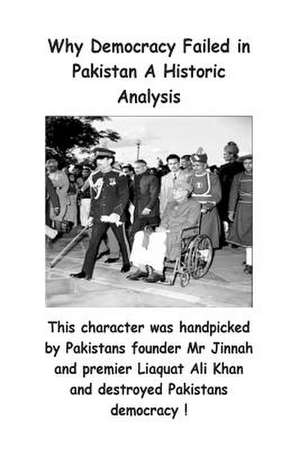Why Democracy Failed in Pakistan a Historic Analysis
Autor Agha Humayun Aminen Limba Engleză Paperback
Preț: 332.51 lei
Nou
Puncte Express: 499
Preț estimativ în valută:
63.63€ • 69.33$ • 53.61£
63.63€ • 69.33$ • 53.61£
Carte indisponibilă temporar
Doresc să fiu notificat când acest titlu va fi disponibil:
Se trimite...
Preluare comenzi: 021 569.72.76
Specificații
ISBN-13: 9781514286630
ISBN-10: 1514286637
Pagini: 264
Dimensiuni: 152 x 229 x 14 mm
Greutate: 0.36 kg
Editura: CREATESPACE
ISBN-10: 1514286637
Pagini: 264
Dimensiuni: 152 x 229 x 14 mm
Greutate: 0.36 kg
Editura: CREATESPACE
